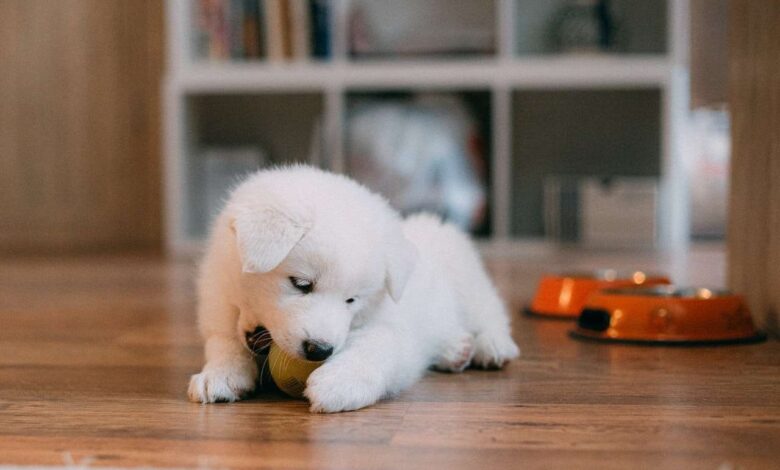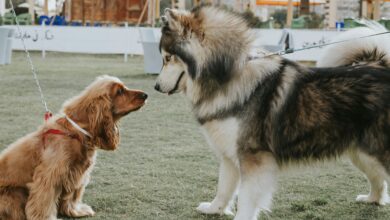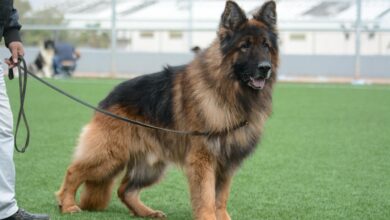
Puppies bring boundless joy into our lives, but along with their adorable antics, they often come with an exasperating habit – biting and mouthing. These behaviors are entirely natural, rooted in their curious and teething nature, but teaching them to play gently is crucial for a harmonious bond. In this guide, we’ll embark on a journey to understand the reasons behind puppy biting and mouthing, redirect these behaviors, manage teething discomfort, and cultivate good manners through effective training techniques. Bid farewell to those puppy woes as we explore the path to delightful playtime.
Understanding Puppy Biting and Mouthing
The Nature of Puppy Biting and Mouthing
Imagine this: a tiny, fluffy ball of energy with sharp teeth exploring the world by chomping on everything in sight. That’s puppy biting and mouthing in a nutshell. It’s not misbehavior; it’s just their way of understanding the world.
Puppies’ Innate Curiosity: Puppies are naturally inquisitive, and they often use their mouths to explore their surroundings.Puppies are born with an instinct to explore through their mouths. It’s how they learn about their surroundings, much like how babies put everything in their mouths to understand their environment.
So, when your puppy nibbles on your fingers or nuzzles your toes, they’re simply trying to understand the world. Understanding this can help you respond with patience and grace, recognizing that puppy biting and mouthing are normal developmental stages.
Teething Troubles: Why Puppies Bite
Now, picture tiny razor-sharp teeth emerging in your puppy’s mouth. Teething is a challenging phase for puppies, just as it is for human infants. The discomfort of new teeth breaking through their gums can make them even more prone to biting.
Teething Stages in Puppies: Teething can start as early as three weeks of age and continue until they are six months old. Understanding the different stages of teething and its impact on your puppy’s behavior is crucial.Teething stages can last several months. During this period, puppies may experience sore gums and an intense need to chew to alleviate the discomfort.
Biting to Soothe Sore Gums: Puppies often bite more during teething to alleviate the discomfort in their gums. Much like a teething baby, they instinctively seek relief through chewing.
Your role as a puppy parent is to help ease their teething woes. Provide them with appropriate chew toys, keep their toys in the fridge for added relief, and consider using puppy teething gels as recommended by your veterinarian.
How to Train Gentle Play
Redirecting Puppy Biting
Redirecting your puppy’s biting tendencies away from your hands, feet, and cherished belongings is a game-changer. Imagine your pup choosing toys over fingers – that’s the goal.
Recognizing the Signs of Impending Biting: To effectively redirect biting, it’s essential to recognize the signs. Watch for body language cues, such as a stiffening posture or intense focus on your hand. When you see these signs, act promptly to redirect their attention to a suitable toy.
For example, if your puppy starts to nibble your hand during play, gently remove your hand, and replace it with a chew toy. Praise them when they engage with the toy instead.
Teaching Your Puppy to Bite Gently
Now, let’s talk about teaching your puppy to play gently. This is where “bite inhibition” comes into play – pun intended.
Bite Inhibition Defined: Bite inhibition is the ability to control the force of their bite. Puppies naturally learn this through play and interaction with their littermates. If one puppy bites too hard, their sibling will yelp and stop playing.
To teach your puppy this important skill, engage in gentle playtime with them. If they bite too hard, yelp softly and stop playing for a moment. This mimics what their littermates would do. They’ll soon learn that biting too hard results in the end of play.
Remember to always use positive reinforcement. Praise and reward your puppy when they play gently, reinforcing the desired behavior.
Socializing Your Puppy
Socialization is like puppy school – it’s a vital part of raising a well-rounded and well-behaved dog. However, during this phase, puppies may sometimes resort to biting and mouthing in unfamiliar situations.
The Importance of Socialization: Socialization helps your puppy become confident and comfortable around new faces, environments, and experiences. It’s crucial for their overall development.
For instance, when introducing your puppy to another dog, do so in a controlled environment. If your puppy starts to bite or mouth the other dog excessively, separate them briefly and then allow them to interact again. This helps them learn proper social behaviors.
When meeting new people, let your puppy approach at their own pace. If they start nipping at a stranger’s hand, gently redirect their attention to a toy or treat.
By managing biting and mouthing during socialization, you’re setting the stage for a well-mannered and confident adult dog.
Solutions and Prevention
Puppy Biting and Mouthing Solutions
Dealing with specific biting and mouthing problems requires tailored solutions. Let’s tackle some common scenarios:
How to Stop a Puppy from Biting Hands: If your puppy tends to bite hands, keep chew toys within reach and offer them whenever your puppy starts nibbling on your hands. Consistency is key.
Preventing Puppy Mouthing of Feet: To prevent your puppy from nipping at your feet, consider using bitter apple spray on your shoes. When they bite, they’ll encounter an unpleasant taste.
Redirecting Puppy Biting to Toys: Always have a variety of chew toys available. When your puppy starts to bite something they shouldn’t, redirect their attention to a suitable toy.
Addressing Puppy Biting and Mouthing in Apartments: Apartment living with a puppy can be challenging. Make use of playpens, baby gates, and closed doors to separate your puppy from areas where they might chew on furniture or belongings.
Preventing Puppy Biting and Mouthing
Prevention is the cornerstone of successful puppy training. Here’s how to set your puppy up for success:
Early Prevention Strategies: Before bringing your puppy home, puppy-proof your space by removing potential hazards and valuable items. Create a designated play area with plenty of toys.
Puppy Biting and Mouthing Prevention Tips: Consistently provide chew toys and encourage play with them. Use positive reinforcement to reward desired behavior, reinforcing the importance of gentle play.
Puppy-Proofing Your Home: Safeguard your home by securing electrical cords, removing toxic plants, and using baby gates to block off areas where your puppy shouldn’t roam.
Training Techniques for Prevention: Establish a routine for training and playtime. Use treats and praise to reward desired behavior, reinforcing the importance of gentle play.
Handling Multiple Puppies
If you find yourself raising multiple puppies, managing their biting and mouthing can be quite the juggling act. Here are some tips:
Special Considerations When Raising Multiple Puppies: Understand that puppies often learn bite inhibition from their littermates. Monitor their interactions closely, and step in if play becomes too rough.
Managing Biting and Mouthing Among Littermates: It’s normal for puppies to playfully bite and wrestle with their siblings. However, if it escalates into aggression, separate them briefly and reintroduce them calmly.
Training Multiple Puppies Simultaneously: Enlist the help of family members or a professional trainer to ensure that each puppy receives the necessary attention and training.
Puppy Biting and Mouthing
In conclusion, teaching your puppy gentle play is a journey of understanding, patience, and positive reinforcement. Puppy biting and mouthing are natural behaviors, but with the right approach, you can transform your puppy into a well-behaved companion.
By understanding the reasons behind their behavior, redirecting their tendencies, and socializing them effectively, you’re setting the foundation for a lifelong bond of joy and companionship.
Remember, puppies are like sponges, eager to learn and please. With consistency and love, you’ll guide them toward becoming the well-mannered and gentle playmate you’ve always dreamed of.








